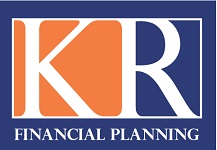If you’re about to launch or you’re in that exciting first year of business, make sure you get a solid grasp on the ‘money side’ early on. While your focus might be on building a customer base and driving sales, developing good cash flow habits stabilises your business and should be equally prioritised – if not more.
Poor money management can tear apart even the most profitable businesses. But the good news is, you don’t have to be an accounting whizz to set your business up for success.
There are a few simple rules that can help you manage your money easier and use your resources effectively, without getting overwhelmed.
And if you’ve already started your business, it’s never too late to embed these practices into your operations.

1. Separate your personal and business accounts
Separating personal and business transactions is one of the most useful things you can do. This makes it easier to track your cash flow, manage tax deductions and apply for finance if you need it.
You can also budget business expenses better, simplify accounting, create consistency and gain peace of mind your bookkeeping is clean. The sooner you separate accounts, the easier it is to reduce your legal liability.
Try this:
-
Open an account strictly for business with a debit card
-
Consider attaching a small business credit card to the account
-
Separate receipts in case of an audit
-
Look for an account with a zero monthly fee option. This is particularly relevant to online-only businesses.
-
Set up recurring payments
2. Crush cash flow problems with tidy records
Keeping meticulous books, no matter what is key to crushing cash flow problems. If you’re spending more than you’re receiving you may find yourself in a challenging position or start digging into your personal expenses.
Set up good financial habits by tracking expenses and planning for potential issues. Be sure to include and keep receipts for fuel, supplier costs, client meetings, business subscriptions and website and marketing expenses. You can log them in a business spreadsheet or automate the process with bookkeeping software such as QuickBooks or Xero.
Try this:
-
Set clear payment terms and stick to them
-
Track each business purchase and transaction weekly or monthly
-
Budget for tax by putting aside 10 per cent into an account each pay
-
Don’t let your record-keeping slide
3. Recognise cash flow warning signs and have a backup plan
Handling money well is your most important business tool. Skills and passion can only get business owners so far, but if you don’t recognise cash flow warning signs, finances can get messy very quickly.
Common money mistakes include no backup funding, cost-cutting to increase profits and failing to handle unpredicted finances. Mixing accounts, unrealistic budgets and paying off debt with personal funds are also common culprits.
Try this:
-
Create an emergency fund for unexpected business purchases
-
Price products and services correctly
-
Use authoritative sources for cash flow tutorials
-
Plan for when business is slow
-
Don’t ignore your taxes
-
Know your customers and their paying habits to plan accordingly
4. Pay yourself!
Another common money mistake is not paying yourself first.
Especially when you’re just starting out, it’s normal to prioritise other expenses such as suppliers and marketing costs. But if you don’t get into the habit of paying yourself early, you could end up paying more income tax and put unplanned strain on your cash flow. As your profits grow make sure you build your salary.
Try this:
-
Make ‘you’ the priority and put aside 10 per cent of each pay
-
Understand the different ways you can pay yourself
-
Open a high-interest savings account to pay yourself into
-
Set up smart alerts with your business transaction account to monitor if funds are low, high or you’ve just been paid
-
Don’t overlook Government support for grants and COVID payments
5. Invest in invoice automation
Bookkeeping and tax headaches are very real for business owners. Preserve your sanity by investing in automation, which benefits your business through professionalism, time-saving organisation and reduced operation costs.
Invoice automation also strengthens your brand identity and customer relationship management. You’ll get paid faster by clients, ensure a transparent and accurate process, and minimise stress come tax time. If you need extra support consider engaging a bookkeeper to finalise monthly statements.
Try this:
-
Move beyond manual data entry and double-handling
-
Experiment with two or three free versions of bookkeeping software to determine which one works best for your business
-
Use automation data to see how your business is performing and make necessary adjustments
-
Automate accounts payable
-
Use your invoices as a way to brand your business with logo, colours and font through a clear and professional design.
-
Include your ABN, contact information, business account details, payment terms and hidden charges
Starting a new business is rewarding, but its success relies upon how well you manage your money. It also depends the strength of your idea, your business plan and your marketing plan. Call us on (07) 3844 4322 or Download Flying Solo’s free Starting Out Kit to help you nail all those elements in one.
Source: Flying Solo October 2021
This article by Jayde Walker is reproduced with the permission of Flying Solo – Australia’s micro business community. Find out more and join over 100K others https://www.flyingsolo.com.au/join.
Important: This provides general information and hasn’t taken your circumstances into account. It’s important to consider your particular circumstances before deciding what’s right for you. Any information provided by the author detailed above is separate and external to our business and our Licensee. Neither our business, nor our Licensee take any responsibility for any action or any service provided by the author. Any links have been provided with permission for information purposes only and will take you to external websites, which are not connected to our company in any way. Note: Our company does not endorse and is not responsible for the accuracy of the contents/information contained within the linked site(s) ac www.flyingsolo.com.au



